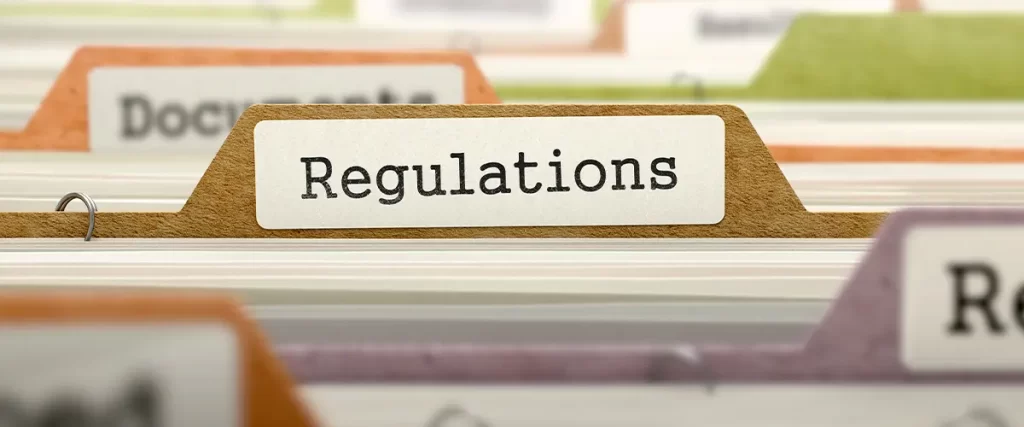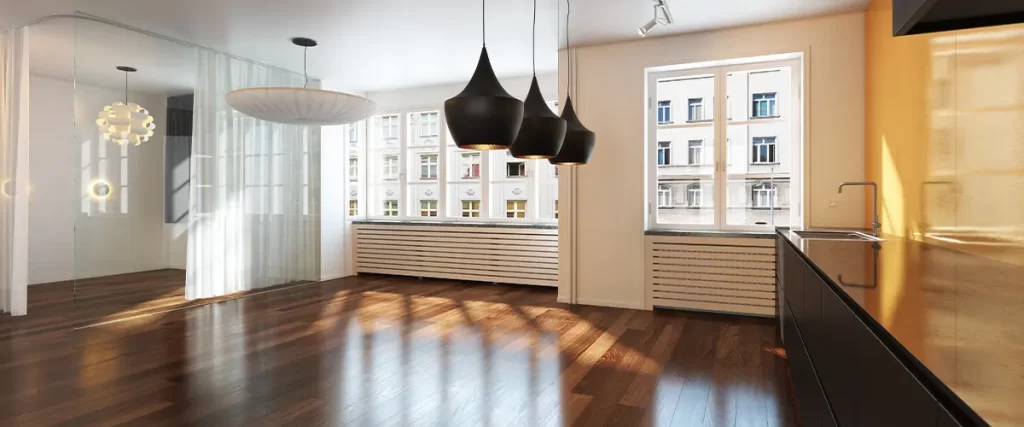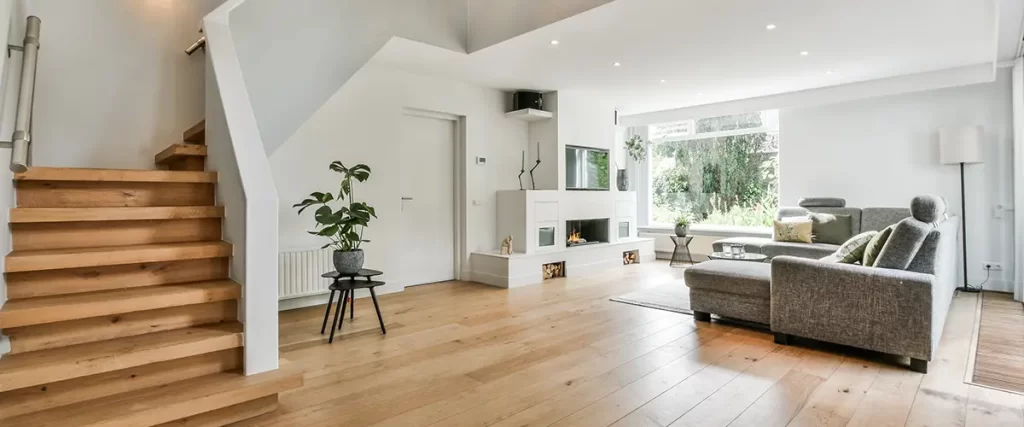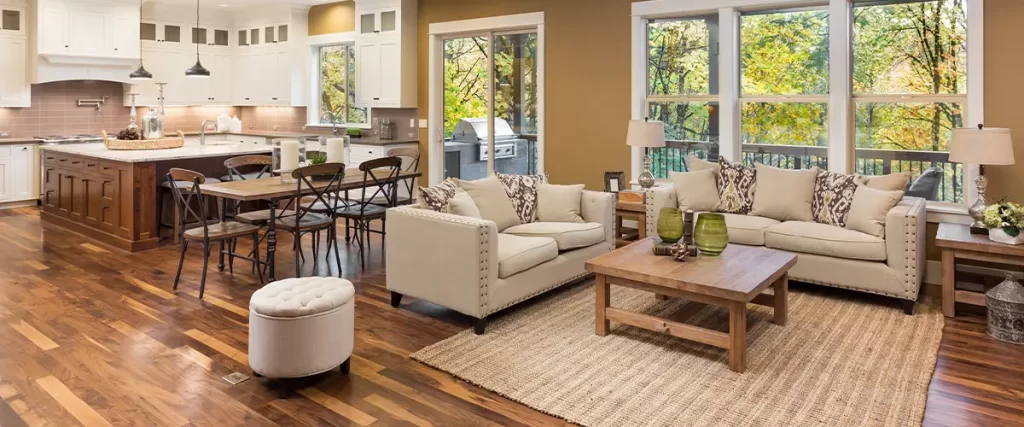Short-term rentals, such as those listed on Airbnb and VRBO, have become a popular way for homeowners in Alpharetta and Roswell to generate additional income. However, when it comes to flooring—especially hardwood—there are a few regulatory, safety, and maintenance considerations that must be addressed.
This comprehensive guide will explore the hardwood flooring regulations and best practices for short-term rentals in these cities, helping you ensure compliance, enhance guest safety, and maintain the beauty and durability of your flooring.

Why Hardwood Flooring Regulations Matter for Short-Term Rentals
Regulations for short-term rental properties are designed to ensure that guests enjoy a safe, comfortable, and attractive living space. Hardwood floors can add significant value and appeal to a property, but they also present unique challenges in a rental environment. Consider the following reasons why adhering to hardwood flooring regulations is essential:
- Safety: Floors in short-term rentals must meet slip resistance and durability standards to prevent accidents and injuries.
- Maintenance: High guest turnover can lead to increased wear and tear. Regulations help ensure that flooring is installed and maintained to withstand heavy use.
- Compliance: Local building codes and short-term rental guidelines may require specific standards for materials, installation methods, and finish durability.
- Insurance and Liability: Meeting or exceeding regulations can protect you from liability issues and ensure that your property insurance remains valid.
- Guest Satisfaction: Quality flooring contributes to the overall guest experience, leading to better reviews and repeat bookings.
Understanding these factors can help you make informed decisions about your hardwood flooring choices, ensuring that your short-term rental property not only complies with local regulations but also stands up to the demands of frequent use.
Overview of Local Building Codes and Short-Term Rental Regulations
In Alpharetta and Roswell, building codes are generally derived from state and international standards, with local amendments that address regional concerns. While there isn’t a separate set of “hardwood flooring regulations” for short-term rentals per se, several aspects of the local codes impact hardwood floors, especially in rental properties. Key considerations include:
Structural and Safety Standards
- Slip Resistance:
Flooring must provide adequate slip resistance, particularly in areas like kitchens, bathrooms, and entryways where moisture is common. Some local codes may specify a minimum coefficient of friction for floor surfaces in rental properties. - Load-Bearing and Durability:
Floors should be capable of handling high traffic without compromising structural integrity. This is crucial in short-term rentals where guest turnover is high.
Material and Installation Standards
- Approved Materials:
Local building codes may dictate that flooring materials used in rental properties must meet certain durability standards. For hardwood floors, this might mean using species known for stability and resistance to moisture. - Installation Methods:
Proper installation is critical to ensure that hardwood floors perform as expected over time. Guidelines may cover subfloor preparation, moisture barriers, and acclimation of materials, especially in regions with high humidity like Alpharetta and Roswell.
Maintenance and Upkeep
- Regular Inspections:
Short-term rental properties are subject to more wear and tear, making regular inspections and maintenance a regulatory and practical necessity. - Finishing and Sealants:
Floors should be finished with high-quality, low-VOC sealants that provide both aesthetic appeal and protective benefits against moisture and stains.
Accessibility and Health Considerations
- ADA Compliance:
While residential rental properties may not always be required to meet full ADA standards, ensuring that flooring is smooth, even, and free from hazards is important for guest safety. - Indoor Air Quality:
Using low-VOC finishes and environmentally friendly materials contributes to healthier indoor air quality, an important consideration for guests, especially those with allergies or respiratory issues.

Best Practices for Hardwood Flooring in Short-Term Rentals
To achieve compliance and maintain a high-quality flooring system in your short-term rental, consider these best practices:
1. Choose Durable, Moisture-Resistant Hardwood Options
Selecting the right hardwood is crucial for both aesthetics and longevity. Consider:
- Engineered Hardwood:
Engineered hardwood is designed to be more dimensionally stable than solid hardwood, making it a better option in areas with high humidity. - Species Selection:
Opt for hardwood species that are known for durability and moisture resistance, such as oak, hickory, or bamboo. - Pre-Treated or Finished Flooring:
Hardwood that has been pre-treated or finished with moisture-resistant sealants can help prevent issues such as warping, cupping, and staining.
2. Ensure Proper Installation
Proper installation is key to long-term performance. Follow these guidelines:
- Acclimation:
Allow hardwood flooring to acclimate to the indoor environment for at least 72 hours prior to installation. - Subfloor Preparation:
Ensure that the subfloor is clean, level, and properly insulated. Installing a moisture barrier can prevent dampness from seeping into the hardwood. - Professional Installation:
Consider hiring experienced professionals who understand local building codes and can ensure a seamless installation process.
3. Implement Regular Maintenance Routines
Short-term rentals experience heavy use, so regular maintenance is essential:
- Scheduled Inspections:
Perform routine inspections to catch early signs of wear, such as scratches, dents, or moisture damage. - Cleaning Regimens:
Use appropriate cleaning products designed for hardwood floors. Avoid excessive water and harsh chemicals that may damage the finish. - Periodic Refinishing:
Depending on the level of use, refinishing may be necessary every 5-10 years to restore the protective layer and enhance the floor’s appearance.
4. Follow Local Regulations and Guidelines
Stay informed about any local amendments or guidelines specific to short-term rentals:
- Permit Requirements:
Confirm that your flooring installation complies with local permit requirements and building codes. This includes ensuring that the flooring meets slip resistance and durability standards. - Documentation:
Maintain records of inspections, maintenance, and any permit applications related to your hardwood floors. This documentation can be useful during property inspections or when renewing short-term rental licenses.
5. Prioritize Guest Safety and Comfort
Ultimately, the quality and safety of your flooring contribute directly to the guest experience:
- Slip Resistance:
Ensure that the hardwood flooring provides sufficient traction, especially in high-moisture areas. - Evenness:
Floors should be smooth and level to prevent tripping hazards. - Aesthetic Appeal:
A well-maintained, beautiful hardwood floor can enhance guest satisfaction, leading to better reviews and higher occupancy rates.

Key Considerations for Hardwood Flooring in Short-Term Rentals
| Consideration | Details | Impact |
| Durability | Choose hardwood species with high durability and moisture resistance | Reduces repair and replacement costs |
| Installation | Ensure proper acclimation, subfloor preparation, and professional installation | Enhances longevity and performance |
| Maintenance | Regular cleaning, inspections, and periodic refinishing | Maintains appearance and safety |
| Compliance | Follow local building codes and permit requirements for short-term rentals | Ensures legal protection and insurance coverage |
| Guest Safety | Prioritize slip resistance and even flooring | Improves guest experience and reduces liability |
Hardwood Flooring Options for Short-Term Rentals
| Option | Key Benefits | Ideal For |
| Engineered Hardwood | High stability in fluctuating humidity; easy installation | Homes with high moisture levels; frequent guest turnover |
| Solid Hardwood | Timeless look; can be refinished multiple times | Properties with controlled humidity; traditional aesthetics |
| Bamboo Flooring | Eco-friendly and highly durable; natural moisture resistance | Eco-conscious homeowners; high-traffic rental spaces |
| Reclaimed Hardwood | Unique character; sustainable; rich historical appeal | Historic properties; properties where authenticity is valued |
Best Hardwood Floor Manufacturers
When selecting hardwood floors for rental properties, quality manufacturers ensure durability, style, and reliability with their premium products.
- Bruce Hardwood Flooring: Known for affordability and wide selections, Bruce offers durable options suited for various interior styles.
- Mohawk Industries: Renowned for eco-friendly practices, Mohawk delivers versatile designs with excellent resistance to wear and tear.
- Shaw Floors: Offers innovative hardwood solutions with scratch-resistant finishes, ideal for high-traffic rental properties.
- Armstrong Flooring: Provides classic and modern hardwood designs, emphasizing both durability and ease of maintenance.
- Kährs: A leader in sustainable hardwood flooring, combining environmental responsibility with high-quality craftsmanship.
Frequently Asked Questions
Q: What type of hardwood flooring is best for short-term rentals in humid climates?
A: Engineered hardwood is often preferred due to its dimensional stability and resistance to moisture, making it ideal for rental properties in humid environments.
Q: How often should I maintain or refinish hardwood floors in a rental property?
A: Regular cleaning should be done weekly, with more thorough maintenance or refinishing recommended every 5-10 years, depending on usage.
Q: Are there specific building codes or regulations for hardwood floors in short-term rentals?
A: While there are no hardwood-specific codes, short-term rental properties must adhere to local building codes regarding safety, slip resistance, and durability. Always check with your local building department.
Q: Can I install hardwood floors myself in a rental property, or should I hire a professional?
A: Hiring a professional is advisable, as proper installation is crucial for durability and compliance with local regulations, especially in high-use rental properties.
Q: How do I ensure my hardwood floors meet guest safety standards?
A: Use slip-resistant finishes, ensure even and level installation, and maintain regular inspections to promptly address any issues.
Q: What are the benefits of using reclaimed hardwood in a rental property?
A: Reclaimed hardwood offers a unique, historical aesthetic and is environmentally friendly, though it may require more careful installation and maintenance to achieve a uniform look.
Q: How can I manage maintenance in a high-traffic rental property?
A: Establish a regular cleaning schedule, conduct routine inspections, and invest in durable flooring options that can withstand heavy use, such as engineered hardwood.

Why Choose Our Team?
Our team has years of experience in the hardwood flooring industry, ensuring professional results every time. Work with the best to save money long-term. Contact us at to get started!
